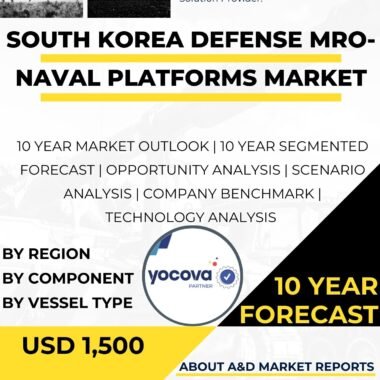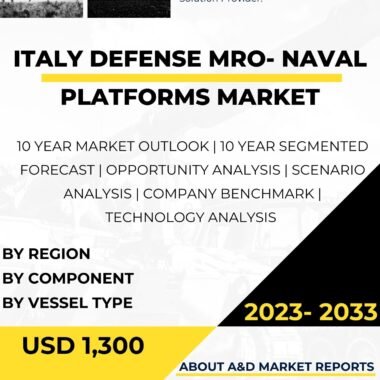Description
United Kingdom Underwater Warfare Market: Securing the Seas
The United Kingdom underwater warfare market is rapidly gaining importance as the country focuses on securing its maritime borders and enhancing naval strength. As an island nation with vast territorial waters, the UK relies heavily on safe and controlled seas for both trade and defense. Investments in underwater systems, including advanced submarines, autonomous vehicles, and modern sensors, are central to maintaining maritime security and operational superiority.
Strength of the United Kingdom Underwater Warfare Market
The Royal Navy operates a fleet of modern submarines equipped with cutting-edge technology, strong weapon systems, and silent propulsion engines. These submarines perform intelligence gathering, coastal and open-sea patrols, and strategic defense operations. Their advanced capabilities allow the UK to monitor critical sea routes, detect potential threats early, and respond effectively to challenges. Continuous upgrades ensure that these underwater platforms remain versatile, resilient, and capable of operating in highly contested maritime environments.
Key Systems in the United Kingdom Underwater Warfare Market
Submarine Technology
The UK fields both nuclear-powered attack submarines (SSNs) and ballistic missile submarines (SSBNs). These vessels are equipped with sophisticated sonar arrays, torpedoes, and cruise missile systems. They can operate quietly for extended periods, conduct covert missions, and gather critical intelligence without detection. Their strategic role in national defense underscores the importance of continued investment in submarine technology.
Underwater Weapons and Sensors
British defense companies develop advanced sonar systems, underwater munitions, and anti-submarine warfare tools. These systems improve detection, tracking, and neutralization of hostile submarines and unmanned underwater vehicles. In addition, they provide secure navigation for friendly naval forces, ensuring mission success and operational safety. Innovations in sensor technology also allow real-time data collection, helping commanders make timely and informed decisions.
Industry Leadership in the United Kingdom Underwater Warfare Market
The UK defense industry is recognized globally for its expertise in underwater technologies. British firms produce autonomous underwater vehicles, advanced communication systems, and high-precision sensors. These products not only strengthen the UK’s maritime capabilities but also support allied nations’ defense operations. By combining industrial expertise with government support, the UK continues to lead in the development of reliable and innovative underwater systems.
International Partnerships
The UK maintains strong international partnerships, particularly through NATO and other defense alliances. It participates in joint exercises, intelligence sharing programs, and collaborative technology development initiatives. These efforts enhance operational interoperability, improve mission effectiveness, and ensure that UK systems can operate seamlessly alongside partner navies. International collaboration also facilitates knowledge exchange and helps accelerate the adoption of new underwater technologies.
Innovation and Research in the United Kingdom Underwater Warfare Market
Leading British universities, research institutes, and defense labs invest heavily in underwater research and development. Current projects focus on next-generation sonar models, secure underwater communication networks, autonomous swarm systems, and enhanced anti-submarine warfare tools. Continuous innovation ensures that the UK can counter evolving threats and maintain technological superiority in underwater defense.
Future Outlook
The United Kingdom underwater warfare market is poised for continued growth and strategic importance. As global maritime threats evolve, investments in advanced submarines, autonomous vehicles, and sensor technologies will remain critical. The combination of modern platforms, cutting-edge technology, skilled personnel, and strong international cooperation positions the UK to maintain dominance in underwater warfare capabilities well into the future.
Conclusion
The United Kingdom underwater warfare market plays a pivotal role in national security and maritime defense. With a strong fleet of submarines, advanced weapons and sensors, innovative research, and active international partnerships, the UK is shaping the future of underwater operations. Continued investment, strategic planning, and technological innovation will ensure that the UK remains at the forefront of global underwater defense.




